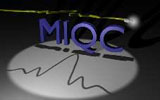
INRIM is the National
Metrology Institute of Italy.
INRIM are the project co-ordinators and their technical expertise will be focused in the coordination of WP2 and with detailed contribution in WP1, WP3 and WP4, based on competence in the area of detector characterisation, photon-number resolved detection, and QKD protocols.
INRIM are the project co-ordinators and their technical expertise will be focused in the coordination of WP2 and with detailed contribution in WP1, WP3 and WP4, based on competence in the area of detector characterisation, photon-number resolved detection, and QKD protocols.

Aalto's
Metrology Research Institute (MRI) is the designated institute (DI) of Finland.
Aalto participates in WP1 and WP3 based on its competence in the area of detector characterisation and fibre optics, including expertise in stable coupling efficiency between free space optics and fibre optics.
Aalto participates in WP1 and WP3 based on its competence in the area of detector characterisation and fibre optics, including expertise in stable coupling efficiency between free space optics and fibre optics.

The CMI
is the National Metrology Institute of the Czech Republic.
CMI participates in WP1 and WP3, based on its competence in the area of low power level spectro-radiometry, instrument design and electronic amplification of low signals.
CMI participates in WP1 and WP3, based on its competence in the area of low power level spectro-radiometry, instrument design and electronic amplification of low signals.

Metrosert is the National Metrology Institute in Estonia.
Metrosert will participate in WP3 based on its competence on research in semiconductor physics and development of artefacts for optical radiometry.
Metrosert will participate in WP3 based on its competence on research in semiconductor physics and development of artefacts for optical radiometry.

The National Physical Laboratory is the UK's National Measurement Institute.
NPL will co-ordinate and contribute to WP1 and WP4 and participate in WP2 and WP3, based on its competence in source and detector characterisation and spectroradiometry.
NPL will co-ordinate and contribute to WP1 and WP4 and participate in WP2 and WP3, based on its competence in source and detector characterisation and spectroradiometry.

The Physikalisch-Technische Bundesanstalt (PTB) is the German National Metrology Institute.
PTB will co-ordinate and contribute to WP3 and participate in WP1 and WP2 based on its competence in source and detector characterisation.
PTB will co-ordinate and contribute to WP3 and participate in WP1 and WP2 based on its competence in source and detector characterisation.

ID Quantique SA (IDQ) is a leading provider for high-speed and high-security encryption appliances that can also be used with quantum key distribution to improve the security of key management.
Furthermore IDQ develops and commercialises a wide range of scientific instrumentation products in the field of single photon detection, and flexible platforms for quantum key distribution.
Furthermore IDQ develops and commercialises a wide range of scientific instrumentation products in the field of single photon detection, and flexible platforms for quantum key distribution.

The Centre for Metrology and Accreditation (MIKES) is a National Metrology Institute designated to develop and maintain the SI-system in Finland
MIKES participates in WP1 and WP3 based on its competence in the area of detector characterisation and fibre optics, including expertise in stable coupling efficiency between free space optics and fibre optics.
MIKES participates in WP1 and WP3 based on its competence in the area of detector characterisation and fibre optics, including expertise in stable coupling efficiency between free space optics and fibre optics.

Together with the University of Vienna Institute for Experimental Physics (Prof. Zeilinger) the business unit Quantum Technologies of the AIT has developed several generations of QKD systems.
The developments were carried out in the framework of several funded projects including the European Integrated Project SECOQC of the 6th framework programme (2004-2008), at the end of which the application of cryptographic keys distributed under realistic assumptions by a QKD network was demonstrated.
The developments were carried out in the framework of several funded projects including the European Integrated Project SECOQC of the 6th framework programme (2004-2008), at the end of which the application of cryptographic keys distributed under realistic assumptions by a QKD network was demonstrated.

KRISS is the national metrology institute in S. Korea. KRISS has recently established optical fibre measurement standards and has a proven track of record in the characterisation of optical fibre.
KRISS will participate in WP2 based on competence in traceable measurements of parameters related to light propagation in optical fibre.
KRISS will participate in WP2 based on competence in traceable measurements of parameters related to light propagation in optical fibre.

The European Telecommunications Standards Institute (ETSI) produces standards for Information and Communications Technologies (ICT), including fixed, mobile, radio, converged, broadcast and Internet technologies. ETSI is officially recognized by the European Union as a European Standards Organisation. ETSI is a not-for-profit organisation with more than 700 ETSI member organisations drawn from 62 countries across 5 continents worldwide.
Based on the outcome of the EC FP6-project SECOQC (Secure Communication based on Quantum Cryptography), an Industry Specification Group (ISG) of the European Telecommunications Standards Institute (ETSI) brought together the important European actors from science, industry to address standardisation issues in quantum cryptography, and quantum technology in general.
Based on the outcome of the EC FP6-project SECOQC (Secure Communication based on Quantum Cryptography), an Industry Specification Group (ISG) of the European Telecommunications Standards Institute (ETSI) brought together the important European actors from science, industry to address standardisation issues in quantum cryptography, and quantum technology in general.

